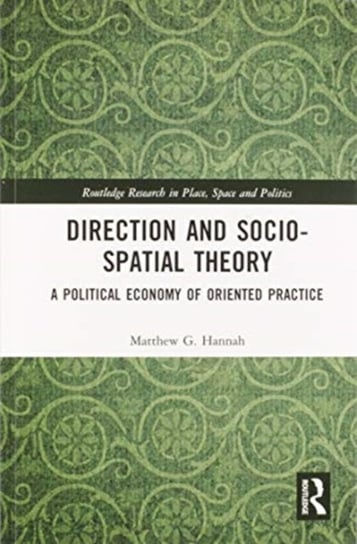3 Million+ Brits May Have Autism Or ADHD: Are You One Of Them?

Table of Contents
Understanding Autism Spectrum Disorder (ASD) in Adults
Autism spectrum disorder is a lifelong developmental condition that affects how a person communicates and interacts with the world. While often diagnosed in childhood, many adults remain undiagnosed, leading to significant challenges in navigating adult life.
Common Signs of Autism in Adults:
Adult autism often presents differently than in children. Recognising the signs can be crucial for seeking support. Common indicators include:
- Difficulty with social interaction and communication: This can manifest as challenges understanding social cues, engaging in small talk, or interpreting nonverbal communication. Adults might experience social anxiety or feel overwhelmed in social situations.
- Repetitive behaviors and routines: Sticking rigidly to routines, having specific interests that consume a significant amount of time, and engaging in repetitive movements are common signs.
- Sensory sensitivities: Individuals with autism may be highly sensitive to certain sounds, lights, textures, or smells, leading to discomfort or distress.
- Challenges with emotional regulation: This can result in intense emotional reactions, difficulty managing stress, and struggles with emotional expression.
- Difficulties with executive functions (planning, organization): This can lead to challenges with time management, prioritization, and completing tasks.
The Importance of Adult Autism Diagnosis:
Receiving an autism diagnosis as an adult is transformative. It offers:
- Access to support services and therapies: Specialized therapies, such as occupational therapy, speech therapy, and social skills training, can help manage challenges and improve quality of life.
- Improved self-understanding and acceptance: Understanding why you experience certain challenges can be incredibly empowering and lead to greater self-acceptance.
- Better management of challenges: With a diagnosis, you can develop strategies to cope with sensory sensitivities, social anxieties, and executive function difficulties.
- Improved relationships and social interactions: Understanding your communication style and social needs can lead to stronger and more fulfilling relationships.
Where to Seek an Autism Diagnosis for Adults in the UK:
The process of obtaining an autism diagnosis can vary. You can explore options like:
- NHS services: Contact your GP for a referral to specialist mental health services.
- National Autistic Society: The NAS provides support, information, and can connect you with diagnostic services.
- Private clinics: Private diagnostic services offer quicker access but often come with a cost.
The diagnostic process typically involves questionnaires, interviews, and assessments by qualified professionals.
Understanding Attention Deficit Hyperactivity Disorder (ADHD) in Adults
ADHD is a neurodevelopmental disorder characterized by inattention, hyperactivity, and impulsivity. While often diagnosed in childhood, many adults go undiagnosed until later in life.
Common Signs of ADHD in Adults:
Adult ADHD often presents differently than in children, with symptoms sometimes more subtle. Look out for:
- Difficulty focusing and maintaining attention: This can include easily getting distracted, struggling to complete tasks, and experiencing mind wandering.
- Hyperactivity or restlessness: This may manifest as excessive fidgeting, difficulty sitting still, or a constant need to be on the go.
- Impulsivity: This can include acting without thinking, interrupting others, and making rash decisions.
- Organization and time management challenges: This can lead to missed deadlines, disorganization, and difficulty prioritizing tasks.
- Emotional dysregulation: Adults with ADHD may experience mood swings, irritability, and difficulty managing emotions.
The Importance of Adult ADHD Diagnosis:
A timely ADHD diagnosis is crucial for accessing effective support. Benefits include:
- Access to treatment options (medication, therapy): Medication can help manage symptoms, while therapy provides coping strategies and skills training.
- Improved productivity and concentration: Treatment can significantly improve focus, concentration, and organizational skills, leading to greater productivity.
- Better management of symptoms: With appropriate treatment, adults can better manage their impulsivity, hyperactivity, and emotional dysregulation.
- Improved relationships and self-esteem: Improved symptom management contributes to stronger relationships and increased self-confidence.
Where to Seek an ADHD Diagnosis for Adults in the UK:
Adults can seek an ADHD diagnosis through various avenues:
- NHS services: Self-referral or GP referral to specialist mental health services.
- Private clinics: Private clinics offer quicker access to diagnosis and treatment, although costs can be significant.
The process typically involves questionnaires, interviews, and assessments by qualified healthcare professionals.
The Overlap Between Autism and ADHD
A significant overlap exists between autism and ADHD. Many individuals are diagnosed with both conditions, highlighting the complexities of these neurodevelopmental disorders. Symptoms can be intertwined, making diagnosis challenging when both conditions are present. Comprehensive assessments considering both possibilities are crucial for an accurate diagnosis and tailored support plan.
Breaking Down the Stigma Surrounding Autism and ADHD
Negative stereotypes and misconceptions about autism and ADHD are prevalent. It's vital to challenge these stigmas and understand that these conditions are not indicative of a lack of intelligence or ability. Individuals with autism and ADHD often possess unique strengths and talents, such as creativity, innovative thinking, and deep focus in areas of interest. Open communication, understanding, and support are crucial for fostering inclusivity and empowering individuals to thrive.
Taking the Next Steps if You Suspect Autism or ADHD
Over 3 million adults in the UK may be living with undiagnosed autism or ADHD. Early diagnosis and intervention are crucial for accessing support and improving quality of life. If you suspect you or someone you know may have signs of autism or ADHD, don't hesitate to seek professional help. Numerous resources and support networks are available in the UK to help you navigate the diagnostic process and access appropriate support. Learn more about autism and ADHD, share this article to raise awareness, and take the first step towards a better understanding and improved well-being. Contact your GP, explore the resources from the National Autistic Society and other relevant organizations, and remember, getting an autism/ADHD diagnosis is a positive step towards self-discovery and improved quality of life.

Featured Posts
-
 Adrien Brody The Perfect Magneto After His Oscar Win
May 13, 2025
Adrien Brody The Perfect Magneto After His Oscar Win
May 13, 2025 -
 Pl Retro Watch Sky Sports Premier League Hd Classics
May 13, 2025
Pl Retro Watch Sky Sports Premier League Hd Classics
May 13, 2025 -
 Your Source For Efl Highlights Live Updates And Replays
May 13, 2025
Your Source For Efl Highlights Live Updates And Replays
May 13, 2025 -
 Rediscover A Hilarious Scarlett Johansson And Chris Evans Movie On Netflix
May 13, 2025
Rediscover A Hilarious Scarlett Johansson And Chris Evans Movie On Netflix
May 13, 2025 -
 Securing A Professorship In Fine Arts A Focus On Spatial Theory And Practice
May 13, 2025
Securing A Professorship In Fine Arts A Focus On Spatial Theory And Practice
May 13, 2025
